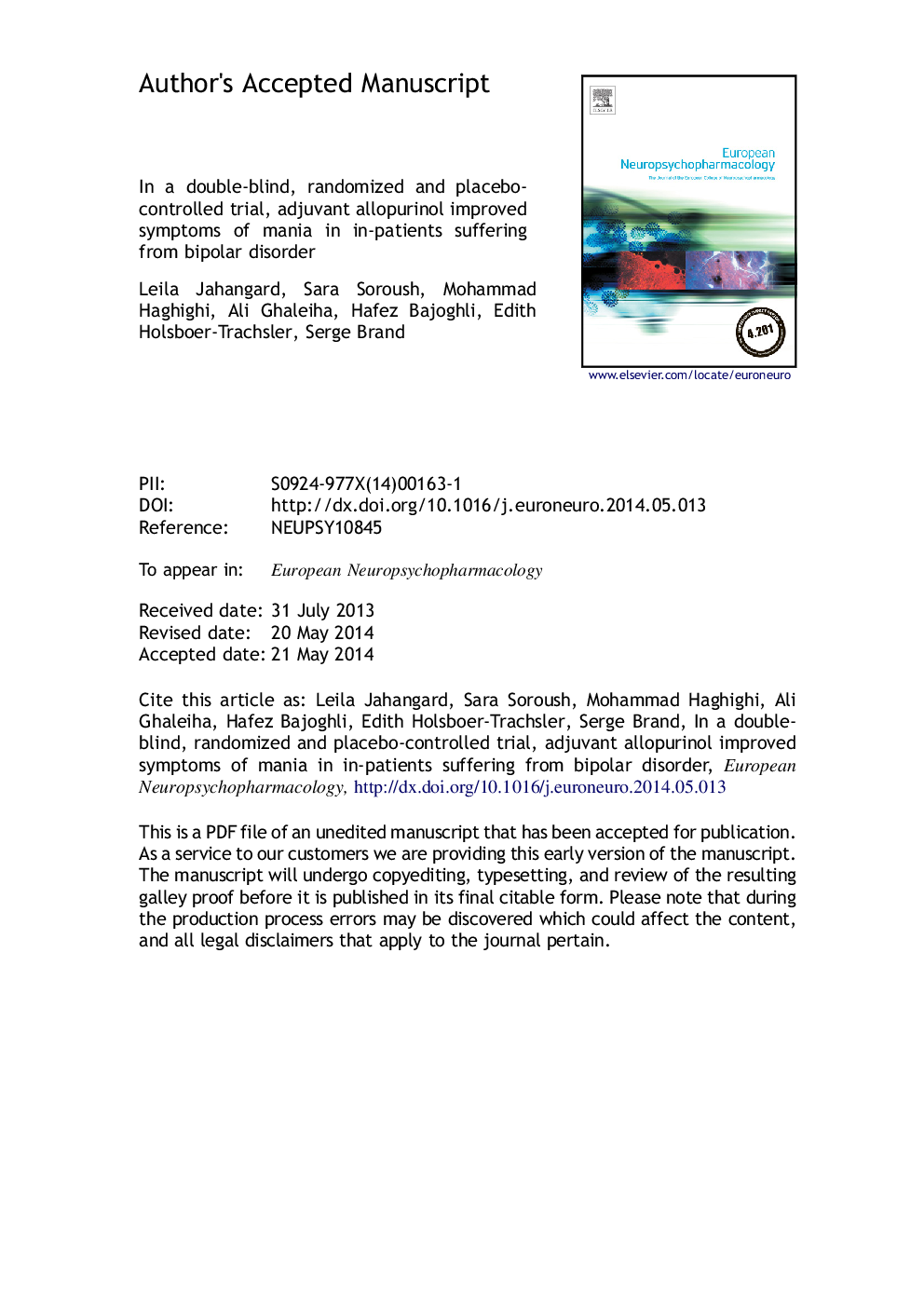| Article ID | Journal | Published Year | Pages | File Type |
|---|---|---|---|---|
| 10299196 | European Neuropsychopharmacology | 2014 | 31 Pages |
Abstract
Allopurinol is a drug used primarily to treat hyperuricemia. In patients suffering from acute mania, increased levels of uric acid are observed, and symptom improvements are associated with decreased levels of uric acid. Accordingly, a purinergic dysfunction is plausibly a causative factor in the pathophysiology of mania. The aim of the present study was therefore to investigating whether allopurinol has benefits for patients treated with sodium valproate during acute mania. (Background) A double-blind, placebo-controlled study lasting 4 weeks was performed. The intention-to-treatment population included 57 patients; 50 concluded the study per protocol. Patients suffering from BPD and during acute mania were randomly assigned either to a treatment (sodium valproate 15-20Â mg/kg+300Â mg allopurinol twice a day) or to a control condition (sodium valproate 15-20Â mg/kg+placebo). Experts rated illness severity and illness improvements (Clinical Global impression), and extent of mania via the Young Mania Rating scale. Uric acid levels were assessed at the beginning and end of the study. (Experimental procedures) Compared to the control group, symptoms of mania decreased significantly over time in the treatment group. Uric acid levels declined significantly in the treatment as compared to the control group. Probability of remission after 4 weeks was 23 times higher in the treatment than the control group. Lower uric acid levels after 4 weeks were associated with symptom improvements. (Results) The pattern of results from this double-blind, randomized and placebo-controlled study indicates that adjuvant allopurinol leads to significant improvements in patients suffering from acute mania (Conclusion).
Related Topics
Life Sciences
Neuroscience
Biological Psychiatry
Authors
Leila Jahangard, Sara Soroush, Mohammad Haghighi, Ali Ghaleiha, Hafez Bajoghli, Edith Holsboer-Trachsler, Serge Brand,
